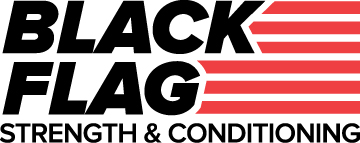Down, but not out.
There are many factors that our bodies deal with daily that can be apparent or unrecognizable. You see, our bodies can adapt to its surrounds, fight off infections and heal itself without us even knowing. But what happens when the external or internal trauma is a little more apparent? How do we adapt to support our bodies and how can we prepare?
I am talking about injuries, surgeries and all the things mixed in between that are meant to keep us down. Many people spend years trying to avoid these, but the truth is, it happens. Whether planned, unplanned, acute, or chronic both injury and surgeries are something that we can experience throughout our lifetime.
The question is, how do we bounce back? How do we prepare?
Throughout my functional fitness career, I have been fortunate enough to avoid major injury, prolonged nagging pain and even surgery. That is, until this year. In April, I underwent a preventative planned surgery that halted my current training regime and took it in a much slower direction. My recovery allowed me to learn what my body needed to properly recover, how to continue to move my body with modified workouts and where I needed to adjust in my current nutrition plan to support my temporary decrease in activity.
Keep an open dialogue about your lifestyle.
I have been with my Physician throughout my entire functional fitness career, so she had a clear understanding of what my current fitness lifestyle is, how often I was training and the types of workouts I was doing. This allowed her to understand where I intended to be at the end of my recovery and what a successful recovery looked like for me. Keeping an open dialogue with your healthcare provider or therapist plays a large part in your individualized recovery.
Understand your injury.
A vital part of my recovery was taking the time to understand my injury, where my limitations would be and what I needed to pay attention to the most during recovery. Since my whole abdominal region was affected by my surgery, I knew that mid line stabilization, flexion and control was something I would struggle within the early stages.
I was fortunate enough to know two months in advance of my surgery date which allowed me to prepare. I know many people are not alerted this far in advance, especially when experiencing injury. It is important to ask questions to understand your injury and the extent of your recovery.
Set mile markers to gauge progress.
After you have a clear understanding of your injury, limitations, and recovery timeline it is now your chance to set progress markers for yourself. These can be done on your own or with the guidance of a health professional. My recovery required a full 6 weeks of moderate movement and exercise with no heavy weightlifting or abdominal bracing. So, this is how I broke it down:
Week 1: No additional movement aside from regular walking around the house and up the stairs.
Week 2: Move for at least 30 minutes every other day either by walking or riding a stationary bike at a slow pace.
Week 3-4: Light dumbbell movements that required no abdominal bracing and increase walking or biking to 5 times a week.
Week 5: Introduce low volume barbell work 2 times a week. (I stayed around 40-50% of 1RM for all movements)
Week 6: Focus on intensity during workouts versus how much weight I was moving. Quality vs. quantity.
Make adjustments to your nutrition planning.
During this time, we will have a lower energy expenditure since our activity levels will be decreased during this time. It’s important to focus on what we are eating and possibly making adjustments to how much we are eating to support the healing process. Focus on eating whole, unprocessed foods. Keep your meals balanced with vegetables, a protein, carbohydrate, and fat source. Reach out to your local Nutrition Coach (cough, cough) and have a conversation on what nutrition plan best fits your needs for right now and what your plan will look like moving forward. Recovering from an injury is no excuse to slack on proper nutrition if anything it is giving us more time to plan and prepare.
Take your ego out of it and listen to your body.
Experiencing injury, surgery or any traumatic physical event can play a tole on us physically as well as mentally. This forces us to dial back, slow down and put a lot of trust in our body and how it heals us. Taking your ego out of your recovery process will play a large part in your mental game. We are conditioned to fight through the pain, embrace the burn and continuously compare ourselves to where we were before. We are doing more harm than good and there is a good chance we are delaying our recovery. It’s important to understand that this season is temporary and with proper planning we will be back to where we were in no time. Continue to listen to your body, understand signs of discomfort and stop when needed. It’s not about healing the quickest, it’s about healing properly.
Bouncing back is hard, there is no doubt about that. As much as it is hard, it is temporary. Lean on the people around you for additional support, dedicate time to yourself and you are healing. Most importantly, trust your body. Your body has the ability to heal itself, but only if you allow it to.
You might be down, but you’re not out.
PS. Disclaimer: Coach Olivia is not a doctor. This is not prescribed treatement just based on personal experience.

ABOUT THE AUTHOR:
Olivia Gilmour is a Black Flag Athletics coach who transitioned into the world of functional fitness in 2016. She believes movement is medicine and plays a vital role in our longevity. As a health professional she focuses on personal development, goal setting and creating a balanced lifestyle.
She enjoys traveling, listening to true crime podcasts and taking long walks in The Rocky River Reservation. She also values a great pizza.
Olivia’s Credentials Include:
•B.S. Exercise Science with an Exercise Specialist Concentration
•Crossfit Level 1 Certified Coach
•Certified Sports Nutrition Coach

